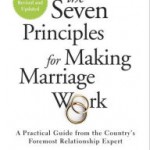
Thanksgiving – A time to get together as families and celebrate – giving thanks for what we have been given throughout the year.
While the tradition is deep-rooted in our culture, with long distances between family members and time constraints, it is becoming more difficult to find the time to get together.
Add to that fractured families, where unkind and hurtful things in the past keep us defensive; even when we do get together it is difficult to let go, relax and be thankful for one another.
We want peace in the world but we don’t necessarily want to seek it in our own homes.










